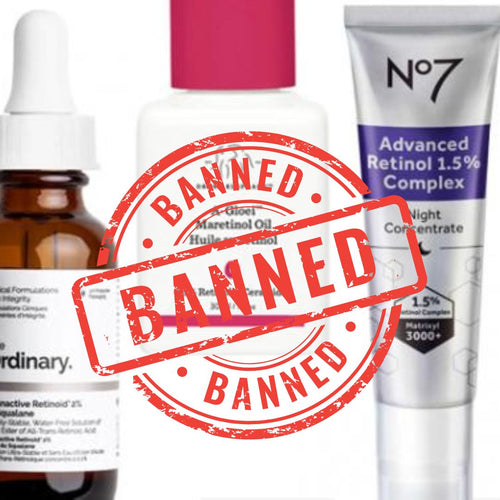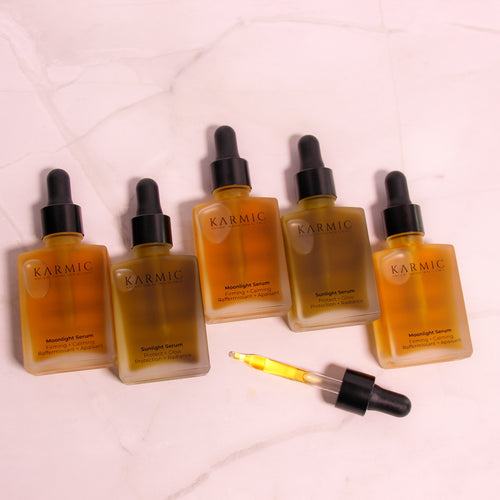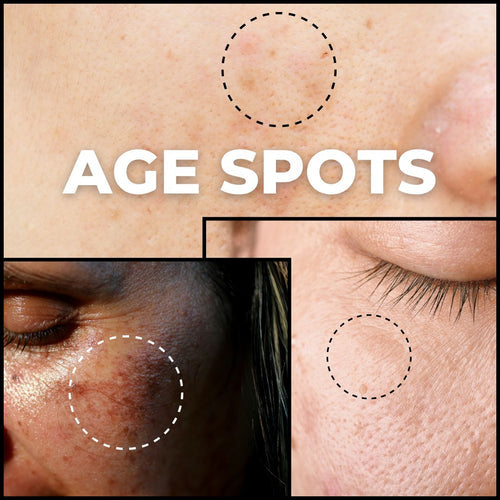Retinol, a derivative of Vitamin A, has long been hailed as a skincare superhero, known for its potent anti-aging and skin-rejuvenating properties. However, recent regulatory changes in the European Union have put this popular ingredient under scrutiny, leading to restrictions that have stirred up the skincare community. This shift raises crucial questions about safety and alternatives, especially the emerging star, Bakuchiol. Here we look into the reasons behind the EU's decision, explore the impact, and compare retinol with its natural counterpart, Bakuchiol, which is gaining attention as a gentler and safer option.
Understanding the Retinol Ban
The EU's decision to ban retinol stems from concerns over its safety profile. While retinol can reduce signs of aging and improve skin texture, it is also associated with several risks and side effects, including:
- Skin irritation and sensitivity: Retinol can cause redness, peeling, and irritation, particularly in those with sensitive skin.
- Sun sensitivity: Increased risk of sunburn under UV light exposure, necessitating rigorous sunscreen application.
- Potential toxicity: High doses of Vitamin A have been linked to toxicity and serious health issues, prompting regulatory bodies to reassess its unrestricted use in cosmetics.
These concerns have prompted the EU to advocate for safer, more sustainable skincare ingredients, influencing consumers and manufacturers to consider alternatives like Bakuchiol.
You can still purchase products containing retinol, though new regulations have been implemented. As of the end of 2023, the European Union introduced legislation that limits the concentration of retinol in over-the-counter items such as serums and moisturisers. Products for the face and hands will have a maximum retinol concentration of 0.3%, while body lotions will be permitted to contain up to 0.05%.
Retinol vs. Bakuchiol: A Closer Look
Bakuchiol, a plant-derived compound, has emerged as a promising alternative to retinol. Extracted from the seeds and leaves of the Psoralea corylifolia plant, bakuchiol offers similar benefits to retinol without the harsh side effects. Here's a comparison of both ingredients based on their benefits and drawbacks:
| Feature | Retinol | Bakuchiol |
|---|---|---|
| Origin | Synthetic, vitamin A derivative | Natural, plant-derived |
| Anti-aging | Reduces wrinkles and fine lines | Comparable effects on reducing wrinkles and fine lines |
| Skin texture | Improves texture and cell turnover | Improves texture, less irritation |
| Safety | Can cause irritation, redness, peeling | Gentler on skin, lower risk of irritation |
| Sun sensitivity | Increases sun sensitivity | Does not increase sun sensitivity |
| Use during pregnancy | Not recommended | Safer alternative for use during pregnancy |
| Eco-friendly | Varied impact | Generally considered more sustainable |

The Rise of Bakuchiol
With the EU's clampdown on retinol, Bakuchiol's popularity is on the rise. Here's why switching to bakuchiol might be the wise move for your skincare routine:
- Gentler on Skin: Bakuchiol delivers the promise of retinol without the harshness, making it suitable for all skin types, including those with sensitive skin.
- No Compromises on Efficacy: Studies have shown that bakuchiol effectively diminishes wrinkles and hyperpigmentation, much like retinol, but without unwanted irritation or peeling.
- Broader Appeal: Its gentler nature makes bakuchiol a better choice for a wider audience, including pregnant women looking for safe skincare options.
- Sustainability: Being derived from a natural source, bakuchiol is often viewed as a more sustainable and environmentally friendly ingredient.
Making the Switch to Bakuchiol
If you're considering switching to bakuchiol, here are some tips to integrate this powerhouse ingredient into your skincare routine:
- Start with a Bakuchiol Serum: Apply a bakuchiol-based serum in your evening routine. Since bakuchiol doesn’t cause sun sensitivity, you can use it any time without worrying about increased sun exposure.
- Patch Test: Although bakuchiol is gentler, it's always wise to perform a patch test when introducing a new product to your routine.
- Listen to Your Skin: Pay attention to how your skin responds during the first few weeks. You may notice improvements in texture and tone without the redness or irritation associated with retinol.

Key Takeaways
The EU's regulatory shift away from retinol has paved the way for natural alternatives like Bakuchiol to shine. This transition not only reflects a growing commitment to safety and sustainability in skincare but also empowers consumers to make informed choices about the products they use.
Bakuchiol stands out as a compelling, effective, and gentle option, capable of delivering the age-defying results traditionally expected from retinol, but with a cleaner and kinder profile. We recommend checking out Moonlight Serum, which is a Bakuchiol Serum that will help reverse the effects of sun damage, rejuvenate the skin barrier and unveil healthy-looking, younger-feeling skin.




